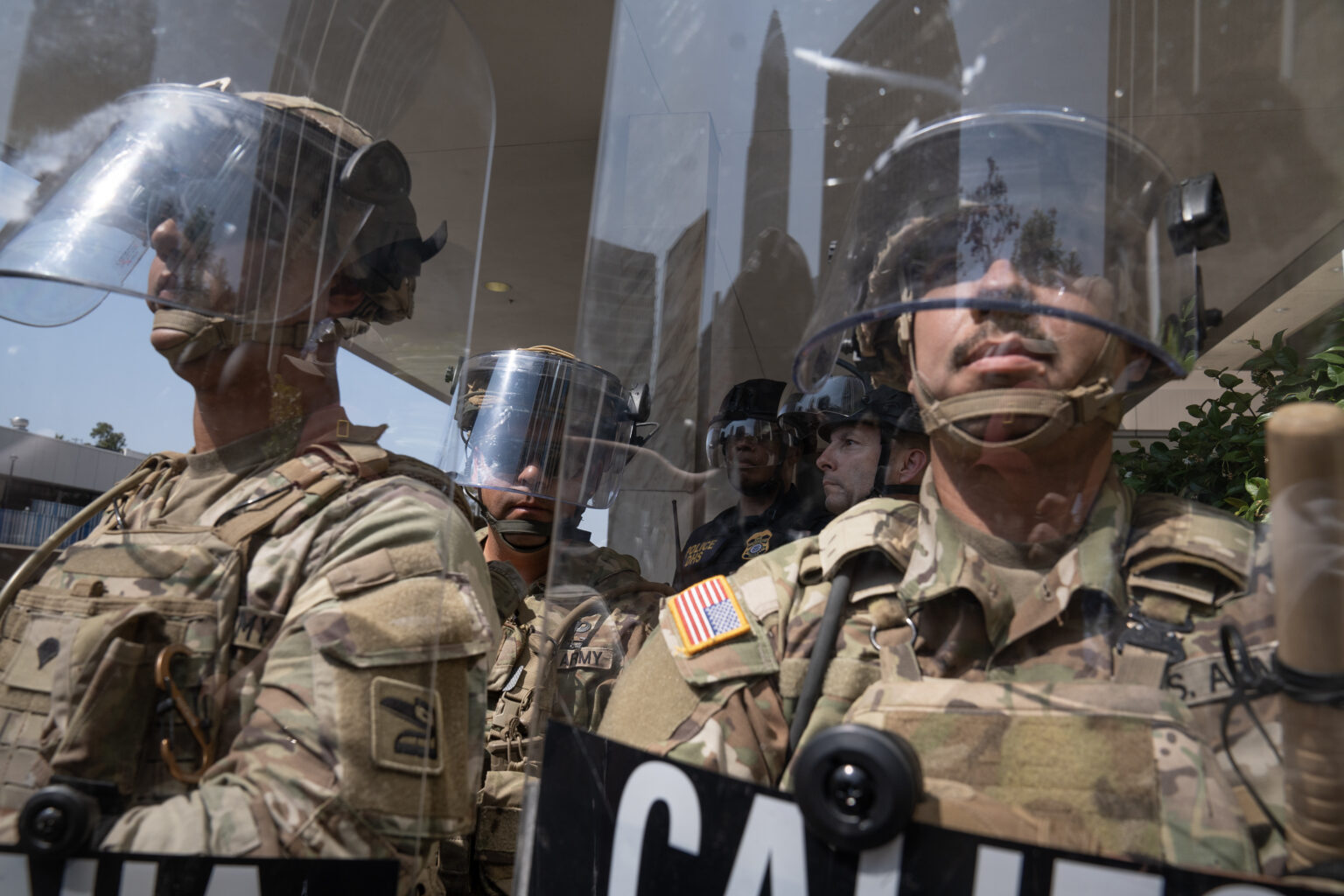Federal Court Upholds President Trump’s Authority to Deploy National Guard in Los Angeles
A recent ruling by a federal appellate court in San Francisco has temporarily affirmed President Donald Trump’s authority to maintain the presence of the California National Guard in Los Angeles. This decision marks a significant development in the ongoing legal debate over the use of military resources to manage protests related to immigration enforcement and deportation policies.
Court’s Ruling: A Win for Executive Authority
On Thursday, the U.S. Court of Appeals for the Ninth Circuit, in a unanimous verdict, authorized the continued deployment of the National Guard in Los Angeles. The three-judge panel, comprising two appointees of President Trump and one appointed by President Biden, concluded that the president’s decision to deploy the Guard was within his legal rights, despite the absence of prior consultation with California’s governor, Gavin Newsom (D).
President Trump responded enthusiastically on social media, describing the decision as a “BIG WIN.” He emphasized that such deployments could be extended nationwide if local law enforcement agencies are unable to manage protests or disturbances effectively, suggesting a broader scope for federal intervention.
Background: Legal Disputes and Court Proceedings
The legal dispute originated when California challenged the Trump administration’s decision to deploy federal forces, including the National Guard, during protests in Los Angeles. A district court initially sided with California, ruling that the deployment was unlawful. The state argued that the federal government overstepped its bounds and that the deployment violated statutory requirements mandating consultation with the state governor before such actions.
In response, the Trump administration appealed, asserting that protests hindered federal law enforcement efforts related to immigration enforcement and that the president possesses broad executive authority to deploy the National Guard as needed. The administration contended that the deployment was justified to protect federal property and personnel.
Court’s Analysis: Balancing Authority and Legal Limits
The Ninth Circuit judges, in their recent decision, rejected the federal government’s claim that the president’s authority to deploy the National Guard is immune from judicial review. However, they also dismissed California’s argument that a federal statute explicitly requires prior consultation with the governor before deployment, instead ruling that the president demonstrated sufficient cause to believe protests were obstructing federal law enforcement activities.
The court’s opinion highlighted evidence indicating that protesters in Los Angeles had engaged in violent acts, such as throwing objects at Immigration and Customs Enforcement (ICE) vehicles, damaging federal property, and breaching secure areas. The judges emphasized that, given these circumstances, the president’s decision to federalize the National Guard was likely within his constitutional and statutory powers.
Implications for Federal and State Authority
The hearing focused narrowly on whether the National Guard could remain in Los Angeles during ongoing legal proceedings. The judges expressed confidence that President Trump would likely succeed in the broader legal challenge, which is why they permitted the Guard’s continued presence.
At the height of the protests, Trump mobilized approximately 4,100 National Guard members and Marines to respond to unrest linked to immigration policies. California officials acknowledged that some protests had turned violent but maintained that local law enforcement was fully capable of handling any disturbances. Notably, California has argued that no previous president has deployed the state’s National Guard without the governor’s approval.
The legal debate also involved restrictions on the scope of military action, with California advocating that troops should only be used to safeguard federal facilities and personnel, not to engage in broader law enforcement activities.
Broader Context and Future Outlook
While protests in Los Angeles have diminished, with law enforcement outnumbering demonstrators on some days, the legal questions surrounding the deployment of federal forces remain unresolved. The case could potentially escalate to the Supreme Court, setting a precedent for how federal and state authorities interact during civil unrest.
Previously, U.S. District Judge Charles R. Breyer ruled that the president’s deployment of troops was unlawful, citing violations of statutory authority and constitutional principles. He ordered Trump to relinquish control to the state government. However, before this order could take effect, the Ninth Circuit temporarily allowed the troops to stay in Los Angeles as the legal battle continued.
This ongoing dispute underscores the complex balance of power between federal authority and state sovereignty, especially in the context of civil protests and national security. As the legal process unfolds, the outcome could significantly influence future federal interventions during times of civil unrest.
Contributors: Frances Vinall and Jintak Han

